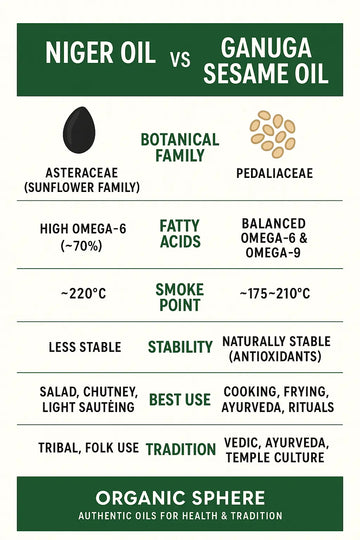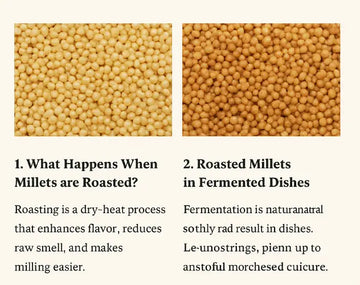
Making healthier food choices has become increasingly important for maintaining overall well-being. With the rise of convenience foods and busy lifestyles, it can be challenging to prioritize nutrition. However, with the right knowledge and strategies, making healthier food choices can be made easy and sustainable. This topic delves into practical tips and tricks that empower individuals to opt for nutritious options without sacrificing taste or convenience. From understanding food labels to incorporating more fruits and vegetables into daily meals, this guide aims to simplify the process of choosing healthier foods. By making small but impactful changes in dietary habits, individuals can enhance their health, energy levels, and quality of life. Join us on this journey towards a healthier lifestyle through informed food choices that nourish both the body and mind.
Section: Understanding Healthier Food Choices
Defining Healthier Food Choices
Eating a balanced diet that includes a variety of nutrient-dense foods is crucial for maintaining good health. Healthier food choices are those that provide essential nutrients such as vitamins, minerals, and antioxidants, while being low in added sugars, unhealthy fats, and excessive calories. By opting for whole foods like fruits, vegetables, whole grains, lean proteins, and healthy fats, individuals can make healthier choices that support overall well-being.
Benefits of Opting for Healthier Food Options
-
Improved Physical Health : Choosing healthier foods can lead to better physical health outcomes, such as weight management, reduced risk of chronic diseases like heart disease and diabetes, and improved digestion.
-
Enhanced Mental Well-being : A diet rich in essential nutrients can positively impact mental health by supporting cognitive function, mood regulation, and overall brain health.
-
Increased Energy Levels : Nutrient-dense foods provide sustained energy levels throughout the day, reducing the likelihood of energy crashes often associated with sugary or processed foods.
-
Better Long-Term Health : Making consistent healthier food choices can contribute to better long-term health outcomes, potentially increasing lifespan and quality of life.
Importance of Portion Control
Effective portion control is another key aspect of maintaining a healthy diet. It involves being mindful of serving sizes to avoid overeating, which can lead to weight gain and other health issues. By practicing portion control, individuals can enjoy a variety of foods while still managing caloric intake and nutritional balance.
Incorporating Superfoods into Your Diet
Superfoods are nutrient powerhouses that are rich in vitamins, minerals, and antioxidants. Including superfoods like berries, nuts, seeds, leafy greens, and fatty fish in your diet can provide additional health benefits, such as boosting immune function, reducing inflammation, and supporting heart health.
The Role of Hydration in Health
Staying hydrated is essential for overall health and well-being. Water plays a crucial role in various bodily functions, including temperature regulation, digestion, nutrient transport, and waste removal. Opting for water as the primary beverage choice and consuming an adequate amount daily can help maintain proper hydration levels and support optimal body function.
Adopting healthier food choices, practicing portion control, incorporating superfoods, and prioritizing hydration are all key components of a balanced and nutritious diet that can positively impact physical and mental well-being over the long term.
Practical Steps to Implement Healthier Food Choices
Making healthier food choices can often be a challenging task. However, with a little planning and some simple strategies, it is possible to incorporate nutritious options into your daily diet seamlessly. Here are some practical steps to help you implement healthier food choices:.
- Meal Prep and Plan Ahead for Healthier Options
One of the most effective ways to ensure you are making healthy food choices is to meal prep and plan your meals in advance. By setting aside time to prepare nutritious meals and snacks for the week, you are less likely to reach for unhealthy options when you are short on time or feeling hungry. Consider preparing meals in bulk and portioning them out for easy grab-and-go options. Planning your meals not only helps in controlling portion sizes but also aids in ensuring a balanced diet throughout the week.
- Read Nutrition Labels and Understand What They Mean
When grocery shopping, take the time to read and understand nutrition labels on packaged foods. Pay attention to serving sizes, calories, and the amount of nutrients such as fat, sugar, and sodium. Look for products that are lower in unhealthy fats and added sugars, and opt for items that are rich in vitamins, minerals, and fiber. Being informed about what you are putting into your body is key to making healthier choices. Additionally, be cautious of misleading labels that claim 'low-fat' or 'sugar-free,' as these products may still contain hidden unhealthy ingredients. Developing the skill to decode labels can empower you to make informed decisions while shopping for groceries.
- Find Healthier Alternatives to Your Favorite Snacks or Meals
Instead of depriving yourself of your favorite foods, try to find healthier alternatives that satisfy your cravings while still being nutritious. For example, swap out chips for air-popped popcorn, or choose whole-grain pasta over refined white pasta. Experiment with different herbs and spices to add flavor to your dishes without relying on excess salt or fat. By making simple swaps and modifications to your favorite recipes, you can enjoy delicious meals that are better for your overall health. Moreover, consider exploring local markets or specialty stores for fresh, organic produce and unique ingredients to enhance the nutritional value of your meals.
In essence, by incorporating these practical steps into your daily routine, you can take significant strides towards implementing healthier food choices. Remember, small changes can lead to big results when it comes to improving your diet and well-being. Prioritizing your health through mindful eating habits not only benefits your physical well-being but also contributes to long-term vitality and overall quality of life.
Benefits of Making Healthier Food Choices
Making healthier food choices can have a significant impact on our overall health and well-being. By consuming nutritious foods, we provide our bodies with the essential vitamins and minerals needed to function optimally. Here are some key points to consider when discussing the benefits of making healthier food choices:.
-
Improved Physical Health: Eating a balanced diet can help reduce the risk of chronic diseases such as heart disease, diabetes, and obesity. Nutrient-dense foods support a strong immune system and promote better energy levels.
-
Enhanced Mental Well-being: A healthy diet not only benefits our physical health but also plays a crucial role in maintaining good mental health. Certain nutrients have been linked to improved cognitive function and mood regulation.
-
Long-Term Benefits: While the immediate effects of a balanced diet are noticeable, the long-term benefits are even more compelling. Consistently making healthier food choices can lead to increased longevity, improved quality of life, and a reduced risk of age-related conditions.
-
Weight Management: One of the significant benefits of a balanced diet is its role in weight management. Choosing nutrient-rich foods over processed and high-calorie options can help in achieving and maintaining a healthy weight, reducing the risk of obesity-related complications.
-
Boosted Immunity: A diet rich in vitamins, minerals, and antioxidants can strengthen the immune system, making the body more resilient to infections and illnesses. This can result in fewer sick days and a better overall quality of life.
-
Improved Digestive Health: High-fiber foods, such as fruits, vegetables, and whole grains, promote healthy digestion and can prevent gastrointestinal issues like constipation. A well-functioning digestive system is essential for nutrient absorption and overall well-being.
-
Better Sleep Quality: The impact of diet on sleep quality is often underestimated. Certain nutrients, such as magnesium and tryptophan found in foods like nuts, seeds, and poultry, can promote better sleep patterns and overall restfulness.
-
Enhanced Skin Health: A diet rich in antioxidants and essential fatty acids can contribute to healthier skin. These nutrients help combat oxidative stress, reduce inflammation, and maintain skin elasticity, resulting in a more youthful appearance.
-
Sustainable Energy Levels: Unlike the temporary energy spikes from sugary foods, a balanced diet provides sustained energy throughout the day. Complex carbohydrates, lean proteins, and healthy fats work synergistically to maintain stable blood sugar levels and support optimal energy production.
Prioritizing healthier food choices is an investment in our long-term health and well-being. The positive effects extend beyond physical appearance, impacting our overall quality of life. By understanding the benefits of a balanced diet and incorporating them into our daily lives, we can make informed decisions to support a healthier future.
Conclusion
Making healthier food choices doesn't have to be a daunting task. By incorporating small changes into our daily routines, such as opting for whole foods, cooking at home more often, and staying mindful of portion sizes, we can gradually improve our overall health and well-being. Remember, every positive choice we make towards a healthier diet contributes to a better quality of life in the long run. So, let's embrace these simple steps towards healthier eating and enjoy the benefits it brings to our mind, body, and soul.
Tips for Making Healthier Food Choices
Include a Variety of Fruits and Vegetables in Your Diet
Incorporating a diverse range of fruits and vegetables into your daily meals is a fundamental step towards a healthier lifestyle. These colorful plant-based foods are packed with essential vitamins, minerals, and antioxidants that play a vital role in supporting overall well-being. Aim to include a rainbow of produce in your diet to ensure you benefit from a spectrum of nutrients.
Opt for Whole Grains Over Refined Grains
When it comes to grains, opt for whole grain options like brown rice, quinoa, and whole wheat products. Unlike refined grains that have been stripped of their nutritional content, whole grains are rich in fiber, vitamins, and minerals. They provide sustained energy, promote digestive health, and contribute to a balanced diet.
Limit the Intake of Processed Foods and Sugars
Processed foods and sugary treats are often laden with unhealthy fats, added sugars, and excessive salt. These items offer little nutritional value and can contribute to various health issues when consumed in excess. Opt for whole, unprocessed foods whenever possible and satisfy your sweet tooth with natural sources like fresh fruits or dried fruit.
Incorporate Lean Proteins for Balanced Nutrition
Including lean protein sources such as poultry, fish, tofu, beans, and legumes in your meals is essential for maintaining muscle health and feeling satiated. Proteins are the building blocks of the body and are crucial for functions like tissue repair and immune support. Be mindful of portion sizes and balance your protein intake with plenty of vegetables and whole grains.
Stay Hydrated by Drinking Sufficient Water
Water is a vital component of good health and plays a key role in numerous bodily functions. Adequate hydration supports metabolism, aids in digestion, and helps regulate body temperature. Make it a habit to drink at least 8-10 glasses of water daily, and consider flavoring it with fresh herbs or fruits for added taste without extra calories.
By following these tips and making conscious choices about your diet, you can embark on a journey towards improved health and well-being.
- antioxidants,
- balanced diet,
- dietary habits,
- digestive health,
- energy levels,
- fiber intake,
- food labels,
- food sustainability,
- fruits and vegetables,
- healthier food choices,
- healthy alternatives,
- hydration,
- hydration importance,
- immune system,
- lean proteins,
- long-term health,
- meal prep,
- mental well-being,
- mindful eating,
- nutrient absorption,
- nutrient-dense foods,
- nutrition,
- nutrition labels,
- physical health,
- portion control,
- portion sizes,
- skin health,
- sleep quality,
- superfoods,
- superfoods benefits,
- sustainable energy,
- variety in diet,
- weight management,
- whole grains





